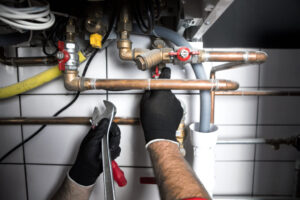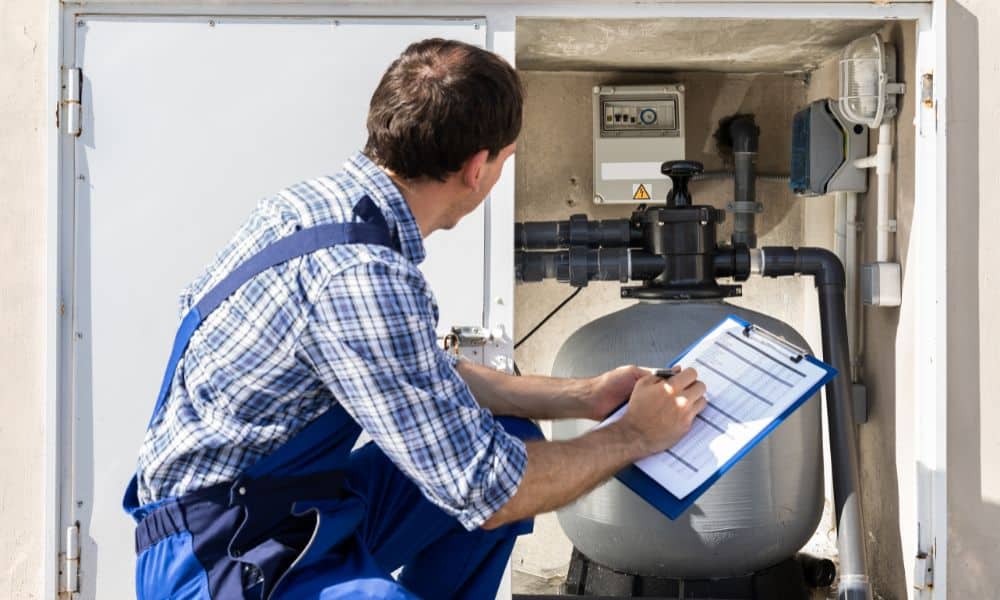Plumbing inspections are one of the most overlooked aspects of home maintenance, yet they play a crucial role in safeguarding your property. Whether you live in a newly built house or a century-old home, your plumbing system is a vital component that demands regular attention. From preventing costly drain cleaning repairs to ensuring the health and safety of your family, plumbing inspections serve as a proactive measure that can save you both time and money.
Understanding the Purpose of a Plumbing Inspection
A plumbing inspection involves a thorough evaluation of your entire plumbing system by a licensed professional. This process typically includes checking all visible and accessible pipes, faucets, fixtures, water heaters, toilets, and drainage systems. The goal is to identify any existing issues, potential risks, or signs of wear and tear that could escalate into major problems.
Inspectors are trained to detect issues that the average homeowner may not notice. Slow leaks, pipe corrosion, low water pressure, and early signs of blockages can often go undetected until they cause significant damage. By identifying these problems early, a plumbing inspection can help maintain the efficiency and longevity of your system.
Preventing Costly Water Damage
 Water damage is one of the most expensive repairs a homeowner can face. A small leak hidden behind a wall or under a sink may not seem like a big deal at first. However, over time, it can lead to mold growth, structural damage, and thousands of dollars in repair costs. Plumbing inspections are instrumental in catching such issues before they escalate.
Water damage is one of the most expensive repairs a homeowner can face. A small leak hidden behind a wall or under a sink may not seem like a big deal at first. However, over time, it can lead to mold growth, structural damage, and thousands of dollars in repair costs. Plumbing inspections are instrumental in catching such issues before they escalate.
During an inspection, the plumber checks for hidden leaks and assesses the integrity of pipes and joints. This can help prevent burst pipes during colder months or under high pressure. Early detection is the key to avoiding emergencies that can disrupt your daily life and strain your budget.
Improving Water Efficiency
A well-maintained plumbing system contributes significantly to water conservation. Many households unknowingly waste gallons of water each day due to dripping faucets, running toilets, or inefficient appliances. Plumbing inspections help identify these inefficiencies, allowing homeowners to make necessary upgrades or repairs.
Replacing old fixtures with water-saving models, fixing leaks promptly, and ensuring that appliances like dishwashers and washing machines are functioning efficiently can lead to substantial savings on water bills. Not only does this benefit your wallet, but it also contributes to environmental conservation.
Ensuring the Health and Safety of Your Household
A faulty plumbing system can pose serious health risks. For instance, a sewer line issue can lead to the backflow of contaminated water into your home, creating unsanitary conditions. Mold and mildew resulting from unnoticed leaks can also cause respiratory problems, especially for individuals with allergies or asthma.
During a plumbing inspection, the professional evaluates the safety of your water supply and checks for potential contamination sources. They also assess water heater settings to ensure safe temperatures, reducing the risk of scalding. These inspections provide peace of mind that your family is not being exposed to hidden dangers.
Adding Value to Your Property
If you’re planning to sell your home, a recent plumbing inspection can be a valuable asset. Prospective buyers often want assurance that the home’s essential systems are in good condition. A clean bill of health from a licensed plumber demonstrates that the property has been well-maintained.
Providing documentation of regular plumbing inspections can also prevent delays during the home inspection process that typically occurs during a sale. It shows transparency and can potentially speed up the transaction while helping you negotiate a better price.
Avoiding Unexpected Repairs and Emergencies
One of the biggest benefits of regular plumbing inspections is the ability to catch minor problems before they become emergencies. Burst pipes, clogged drains, and water heater failures rarely happen without warning. Often, they are the result of small issues that were ignored over time.
Routine inspections create a maintenance history that helps professionals spot patterns and vulnerabilities in your plumbing system. This allows you to plan ahead for repairs or replacements instead of being caught off guard. Preventive care is always more cost-effective than emergency response.
Extending the Life of Your Plumbing System
Plumbing systems are designed to last for decades, but like any part of your home, they need regular care to reach their full lifespan. Pipes, seals, joints, and fixtures all wear down over time. Without inspections and maintenance, these components may fail prematurely.
By scheduling routine plumbing inspections, you ensure that every part of your system remains in good working order. This proactive approach reduces the likelihood of large-scale replacements and helps you get the most value from your original investment. It also promotes consistent performance, so you don’t experience fluctuations in water pressure or quality.

Ideal Timing for Plumbing Inspections
Many homeowners wonder when they should schedule a plumbing inspection. While annual inspections are generally recommended, certain life events or property changes may warrant additional checks. For example, if you’re purchasing a new home, a plumbing inspection should be part of the pre-purchase evaluation. Similarly, after major renovations or natural disasters, it’s wise to assess the system’s condition.
Older homes with aging plumbing may require more frequent checks. Seasonal changes, especially before winter, are also a good time for inspections to prevent freeze-related damage. Consulting a licensed plumber can help you establish a schedule tailored to your home’s unique needs.
Working with a Qualified Plumbing Professional
Choosing a qualified and experienced plumber for your inspection is critical. Not all plumbing issues are visible, and it takes expertise to detect underlying problems. A reputable plumber will use specialized tools, such as video camera inspections for sewer lines, to provide a comprehensive overview of your system.
Building a relationship with a trusted plumbing service provider also means you have someone to call in case of future concerns. They’ll be familiar with your system and better equipped to offer timely and accurate solutions.